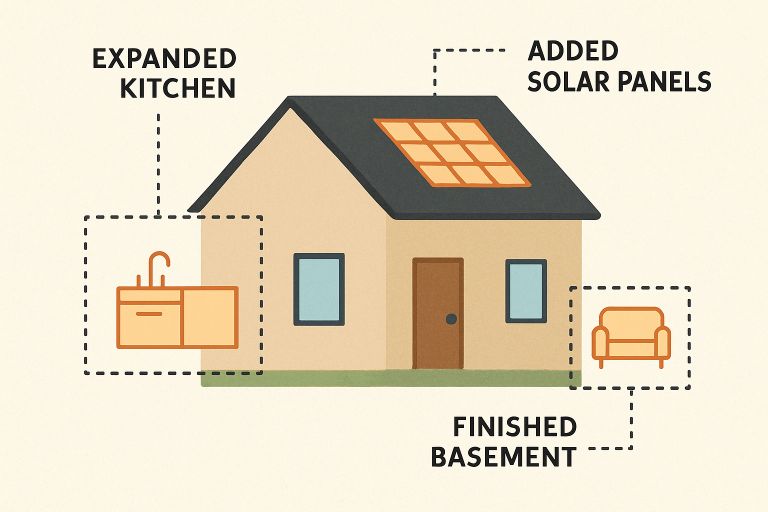Treating depression is no longer limited to conventional methods like medication and talk therapy alone. Various innovative approaches are emerging today, offering new avenues for individuals seeking relief and a better quality of life. These approaches include transcranial magnetic stimulation (TMS), mindfulness-based cognitive therapy, and lifestyle interventions focusing on physical health and social connection. Such methods address depression from multiple angles, providing holistic, personalized care that complements traditional treatments. With these advancements, individuals struggling with depression have more tools than ever to find adequate relief, build resilience, and work toward lasting emotional well-being.
Depression is a pervasive condition that disrupts the lives of millions globally. As we navigate the intricacies of a fast-paced world filled with unique stressors and challenges, the urgency for more effective treatment options grows. One groundbreaking development in mental health treatment includes approaches such as accelerated TMS, which offers compelling solutions to individuals who might not have found solace in traditional methods. These advanced strategies underscore the need for fast-acting and effective interventions to alleviate symptoms compared to conventional remedial approaches swiftly.
Depression’s complex nature requires a multifaceted treatment plan. Evaluating and integrating various treatment methodologies becomes crucial as what remains effective varies from person to person. This personalized approach lies at the core of contemporary mental healthcare practices, generating hope and providing relief to millions affected by this pervasive mental health disorder.
Basics to Modern Depression Treatments
The journey of treating depression has seen a notable evolution from the more binary model of medication and psychotherapy to the incorporation of advanced therapeutic options. Initially, conventional treatments focused on symptom management through an extended period, often resulting in delayed relief. New, cutting-edge treatment strategies attempt to bridge this gap, offering more effective solutions characterized by their rapid results. By delving into the underlying biological and neurological aspects of depression, modern treatments strive to address these roots with precision, ultimately facilitating more personalized and adaptable care frameworks for individuals with diverse needs.
The Science Behind Accelerated Depression Treatment
Innovative treatment methodologies, such as transcranial magnetic stimulation (TMS), expand the horizon in combatting depression. These forward-thinking treatments work by engaging specific brain areas implicated in mood regulation, thereby quickly targeting and alleviating depression symptoms. Early clinical studies have shown promising results, with patients undergoing TMS reporting pronounced improvements in their condition—a beacon of hope for individuals for whom conventional medication therapies have proven ineffective. The expedited nature of TMS dramatically appeals to those striving for swift relief from incapacitating depression, offering a chance to reclaim normalcy and fulfilling life without the debilitating weight of depression shadowing their existence.
The Role of Therapy in Managing Depression
Despite the buzz surrounding new treatments, foundational forms of psychotherapy remain cornerstones in depression management. Techniques such as Cognitive Behavioral Therapy (CBT) empower patients by helping them identify and alter negative thought patterns—ironically, the crux of many depressive symptoms. Different therapeutic approaches, like interpersonal and problem-solving therapy, enrich the treatment landscape by complementing pharmaceutical interventions. Such therapeutic diversity ensures a comprehensive support network, catering to both the psychological and physiological avenues of depression—a crucial factor in devising a comprehensive recovery strategy personalized to each individual’s unique experience and needs.
Lifestyle Changes That Aid Depression Treatment
When paired with accelerated Transcranial Magnetic Stimulation (TMS), lifestyle changes can significantly enhance the effectiveness of depression treatment, fostering a more sustainable recovery. Regular physical activity, for example, boosts endorphin levels and improves mood stability, creating a positive foundation that complements TMS’s effects on brain function. A balanced diet rich in omega-3 fatty acids and antioxidants can enhance brain health and improve the impact of TMS on mood regulation.
Mindfulness practices, such as meditation and deep-breathing exercises, reduce stress and improve resilience to depressive symptoms, working in synergy with accelerated TMS to enhance emotional balance. Additionally, prioritizing good sleep hygiene strengthens mental and physical health, making the brain more receptive to TMS’s therapeutic effects. Building social connections is equally vital, as supportive relationships offer emotional stability and reduce isolation. By incorporating these lifestyle changes, individuals receiving accelerated TMS can enhance their overall treatment outcomes and maintain mental well-being.
Advanced Technologies in Mental Health Care
The feverish pace of technological advancements continually transforms the mental health sector, introducing cutting-edge tools for both diagnosing and treating mental health disorders. Virtual reality garners attention for its usage in therapy, especially in scenarios involving exposure, where it helps create controlled environments to address anxiety. Telemedicine, particularly, revolutionizes mental health care’s accessibility, abolishing geographical constraints and enabling remote consultations, thus providing a bridge to professional mental health services without needing physical proximity. Advancements in telehealth have heightened the availability and convenience of mental care, allowing treatment to be more personalized and aligned intimately with patients’ needs.
Future Perspectives on Depression Treatments
Accelerated Transcranial Magnetic Stimulation (TMS) is shaping the future of depression treatment, offering hope for individuals who may not respond to traditional therapies. Unlike standard TMS, which typically involves daily sessions over several weeks, accelerated TMS delivers multiple sessions in a single day, condensing the treatment timeline. This rapid protocol can make the therapy more accessible and appealing for individuals needing faster relief. Studies suggest that accelerated TMS is effective and can enhance the brain’s plasticity, potentially leading to more lasting changes in mood regulation.
As researchers continue to refine accelerated TMS, it could become a mainstream option, precious for treatment-resistant depression. This approach may also integrate with other emerging therapies, such as neurofeedback and cognitive training, creating comprehensive treatment plans that address both the symptoms and underlying brain mechanisms associated with depression. With ongoing advancements, accelerated TMS holds promise for transforming the landscape of mental health care.







